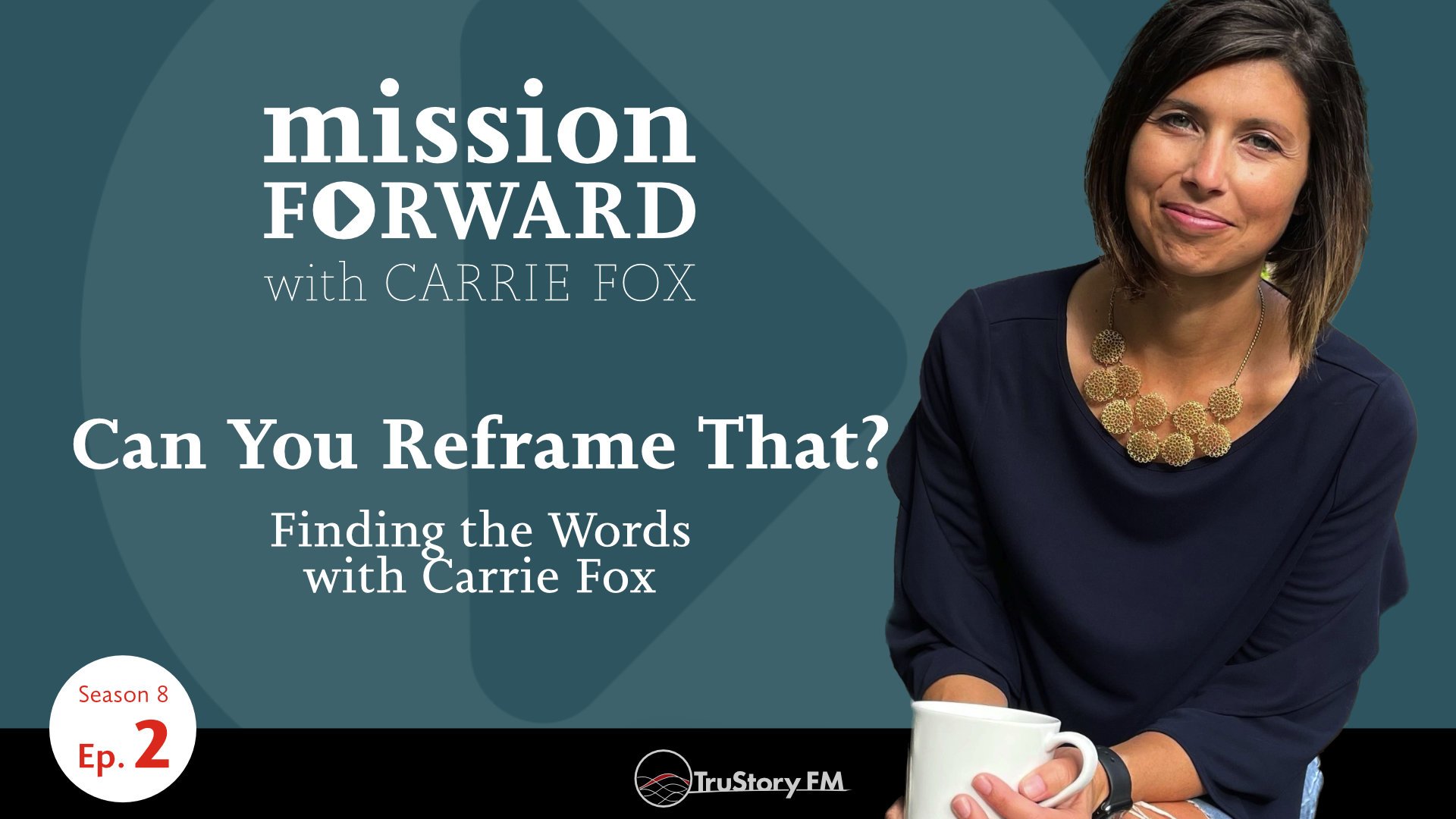Can You Reframe That? • Finding the Words
About This Episode
The most compelling stories for social change break stereotypes and build new ways for us to understand issues and each other. Start by looking for stereotypes in your communications, and then practice some reframing. As we learn this week, the story will be even better as a result.
This week’s essay comes from the Finding The Words column, a series published every Wednesday that delivers a dose of communication insights directly to your inbox. If you like what you read, we hope you’ll subscribe to ensure you receive this each week.
Like this episode? Read this article in our weekly Finding the Words column.
-
I met Jacques in 2008. Back then, he was a teenager from West Philadelphia who was competing with his high school team for the $10M Progressive Insurance Automotive XPRIZE. The global prize competition was hosted by the XPRIZE Foundation, which uses the power of prize competitions to un-stick some of the world’s most intractable problems. And between 2007 and 2010, that problem was America’s addiction to oil.
The XPRIZE Foundation was dangling $10M to world-renowned engineers, well-known automakers, garage inventors, and even a few high schoolers who set out to find a better solution for powering automobiles. I was leading the Prize's public communications efforts. Jacques and his teammates were the underdogs, and their story caught the attention of many national and international news outlets—among them, the TODAY Show.
After working through details with the producers, I traveled to Philadelphia to oversee the taping. For an entire day, the students showed off their technology and answered questions, soaking up the excitement of this experience. Then, a few hours into the taping, the group sat down for a more serious conversation.
The reporter started with a lighthearted conversation before shifting to a line of questioning we hadn’t expected nor had we seen in our prep sheets from the producer. She wanted to know what life was like for these students on the tough streets of inner-city Philadelphia. She wanted to know how many saw guns, drugs, and fights in school and how those experiences shaped their desire to run after this multimillion-dollar prize. Before she could fully shape the narrative she was focused on building, Jacques stepped in.
“That’s not it at all,” he said. “There might be days that are tough here, but that’s no different from any city high school.”
He went on to remind the reporter that the story she was here to cover was about a group of brilliant and creative high school kids breaking barriers that no other kids on the planet had been able to do.
And just like that, he changed the frame. Without realizing it at the time, he deftly moved this reporter away from a deficit-based mindset of storytelling to an asset-based mindset. His questioning of her questions helped reframe the story in a way that would be much more positive, compelling, and accurate.
Trabian Shorters, the global authority on asset-based storytelling, says, “Human beings are hardwired to create and act upon narratives. We crave the moral direction stories provide. And whether we know it or not, we constantly default to these narratives.”
Sometimes those narratives are false, misleading, or limiting. And the effect of those narratives can have a lasting impact on how we see ourselves and each other.
Jacques and his teammates were closest to the story, and they knew how to tell it best. They also knew that most of the world saw them as less than the other competitors vs. one of the most accomplished high school automotive programs in the world. Perspective matters and the story is always better when we get closer to it.
Bottom Line: The most compelling stories for social change break stereotypes and build new ways for us to understand issues and each other. You can start by looking for stereotypes in your communications and then practice some reframing. I guarantee the story will be even better as a result.

